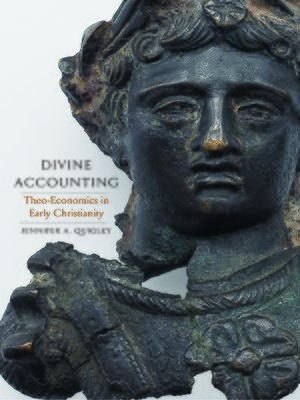
Sign up to save your library
With an OverDrive account, you can save your favorite libraries for at-a-glance information about availability. Find out more about OverDrive accounts.
Find this title in Libby, the library reading app by OverDrive.



Search for a digital library with this title
Title found at these libraries:
| Library Name | Distance |
|---|---|
| Loading... |
A nuanced narrative about the intersections of religious and economic life in early Christianity
The divine was an active participant in the economic spheres of the ancient Mediterranean world. Evidence demonstrates that gods and goddesses were represented as owning goods, holding accounts, and producing wealth through the mediation of religious and civic officials. This book argues that early Christ-followers also used financial language to articulate and imagine their relationship to the divine. Theo-economics—intertwined theological and economic logics in which divine and human beings regularly transact with one another—permeate the letters of Paul and other texts connected with Pauline communities. Unlike other studies, which treat the ancient economy and religion separately, Divine Accounting takes seriously the overlapping of themes such as poverty, labor, social status, suffering, cosmology, and eschatology in material evidence from the ancient Mediterranean and early Christian texts.
The divine was an active participant in the economic spheres of the ancient Mediterranean world. Evidence demonstrates that gods and goddesses were represented as owning goods, holding accounts, and producing wealth through the mediation of religious and civic officials. This book argues that early Christ-followers also used financial language to articulate and imagine their relationship to the divine. Theo-economics—intertwined theological and economic logics in which divine and human beings regularly transact with one another—permeate the letters of Paul and other texts connected with Pauline communities. Unlike other studies, which treat the ancient economy and religion separately, Divine Accounting takes seriously the overlapping of themes such as poverty, labor, social status, suffering, cosmology, and eschatology in material evidence from the ancient Mediterranean and early Christian texts.







